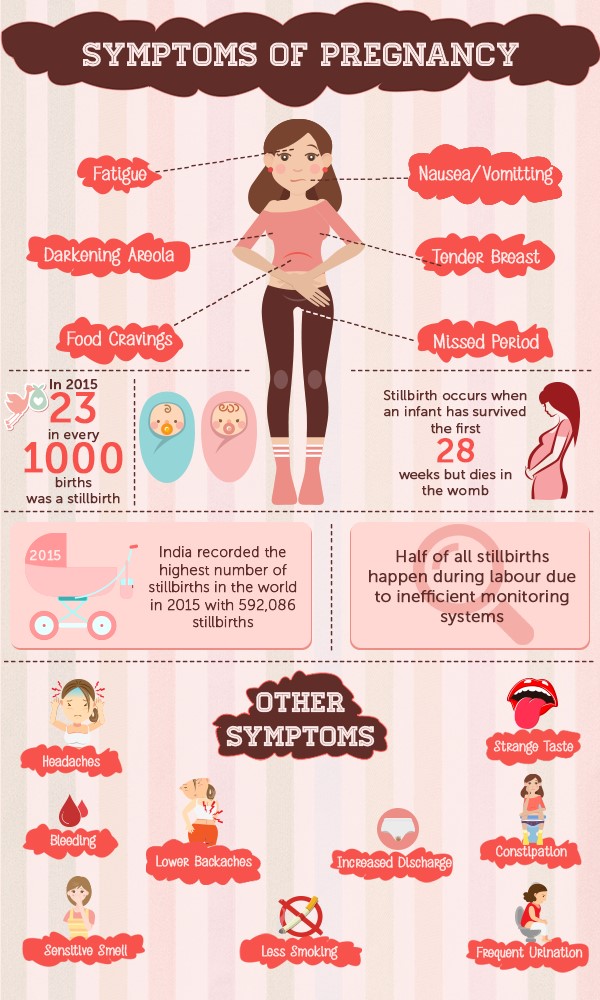
Early Signs of Pregnancy: A Comprehensive Guide
Pregnancy is a transformative journey marked by a myriad of physical, emotional, and hormonal changes. While the first trimester is often characterized by a rollercoaster of symptoms, recognizing the early signs of pregnancy can be crucial for expectant mothers to seek timely prenatal care and ensure a healthy pregnancy.
1. Missed Period
One of the most common and telltale signs of pregnancy is a missed period. Typically, a woman’s menstrual cycle lasts between 28 and 35 days. If a woman has regular periods and misses one, it could be an indication of pregnancy. However, it’s important to note that missed periods can also be caused by stress, hormonal imbalances, or certain medications.
2. Breast Tenderness and Enlargement
During early pregnancy, the breasts undergo significant changes as they prepare for lactation. The breasts may become tender, swollen, and enlarged, and the nipples may darken and become more sensitive. These changes are caused by hormonal fluctuations, particularly the increase in estrogen and progesterone.
3. Nausea and Vomiting (Morning Sickness)
Morning sickness is a common symptom that affects up to 80% of pregnant women. It typically begins around the fourth week of pregnancy and peaks between weeks six and nine. Nausea and vomiting can occur at any time of day, not just in the morning. It is thought to be caused by the increased levels of the hormone human chorionic gonadotropin (hCG).
4. Fatigue and Exhaustion
Extreme fatigue is a hallmark of early pregnancy. The body is working hard to support the growing fetus, which can lead to feelings of exhaustion and a need for increased rest. This fatigue is often accompanied by a feeling of heaviness in the body.
5. Frequent Urination
As the uterus expands during pregnancy, it puts pressure on the bladder, causing frequent urination. This symptom usually becomes more noticeable around the sixth week of pregnancy. The increased production of hCG also contributes to the increased frequency of urination.
6. Food Cravings and Aversions
Many pregnant women experience changes in their food preferences during the first trimester. Some may develop cravings for specific foods, while others may experience aversions to certain foods they previously enjoyed. These changes are thought to be related to hormonal fluctuations and the body’s changing nutritional needs.
7. Mood Swings
Pregnancy can be an emotional rollercoaster, with rapid mood swings and increased sensitivity. These mood changes are caused by the hormonal fluctuations that occur during pregnancy. It is important to remember that these mood swings are temporary and will typically subside as the pregnancy progresses.
8. Bloating and Constipation
The increased levels of progesterone during pregnancy can slow down the digestive system, leading to bloating and constipation. These symptoms can be exacerbated by the pressure of the growing uterus on the intestines.
9. Implantation Bleeding
Some women experience light bleeding or spotting around the time of implantation, which occurs when the fertilized egg attaches to the uterine lining. This bleeding is usually lighter than a menstrual period and lasts for a few days.
10. Elevated Basal Body Temperature
The basal body temperature (BBT) is the lowest temperature reached during sleep. After ovulation, the BBT typically rises and remains elevated during the luteal phase of the menstrual cycle. If the BBT remains elevated for more than 18 days, it could be a sign of pregnancy.
11. Positive Pregnancy Test
A home pregnancy test can detect the presence of hCG in the urine. HCG is a hormone produced by the placenta after implantation. Most home pregnancy tests are accurate within a week of a missed period.
12. Ultrasound
An ultrasound is a medical imaging technique that uses sound waves to create images of the inside of the body. An ultrasound can confirm pregnancy and determine the gestational age of the fetus.
When to See a Doctor
If you suspect you may be pregnant, it is important to schedule an appointment with your healthcare provider as soon as possible. Early prenatal care is crucial for monitoring the health of both the mother and the developing fetus.
Your doctor will perform a physical exam, ask about your symptoms, and order blood and urine tests to confirm pregnancy. They will also provide you with information on prenatal care, nutrition, and lifestyle changes to support a healthy pregnancy.
Conclusion
Recognizing the early signs of pregnancy is essential for expectant mothers to seek timely prenatal care and ensure a healthy pregnancy. While some symptoms, such as missed periods and breast tenderness, are common, it is important to note that not all women experience the same symptoms. If you suspect you may be pregnant, it is always best to consult with your healthcare provider for confirmation and guidance.